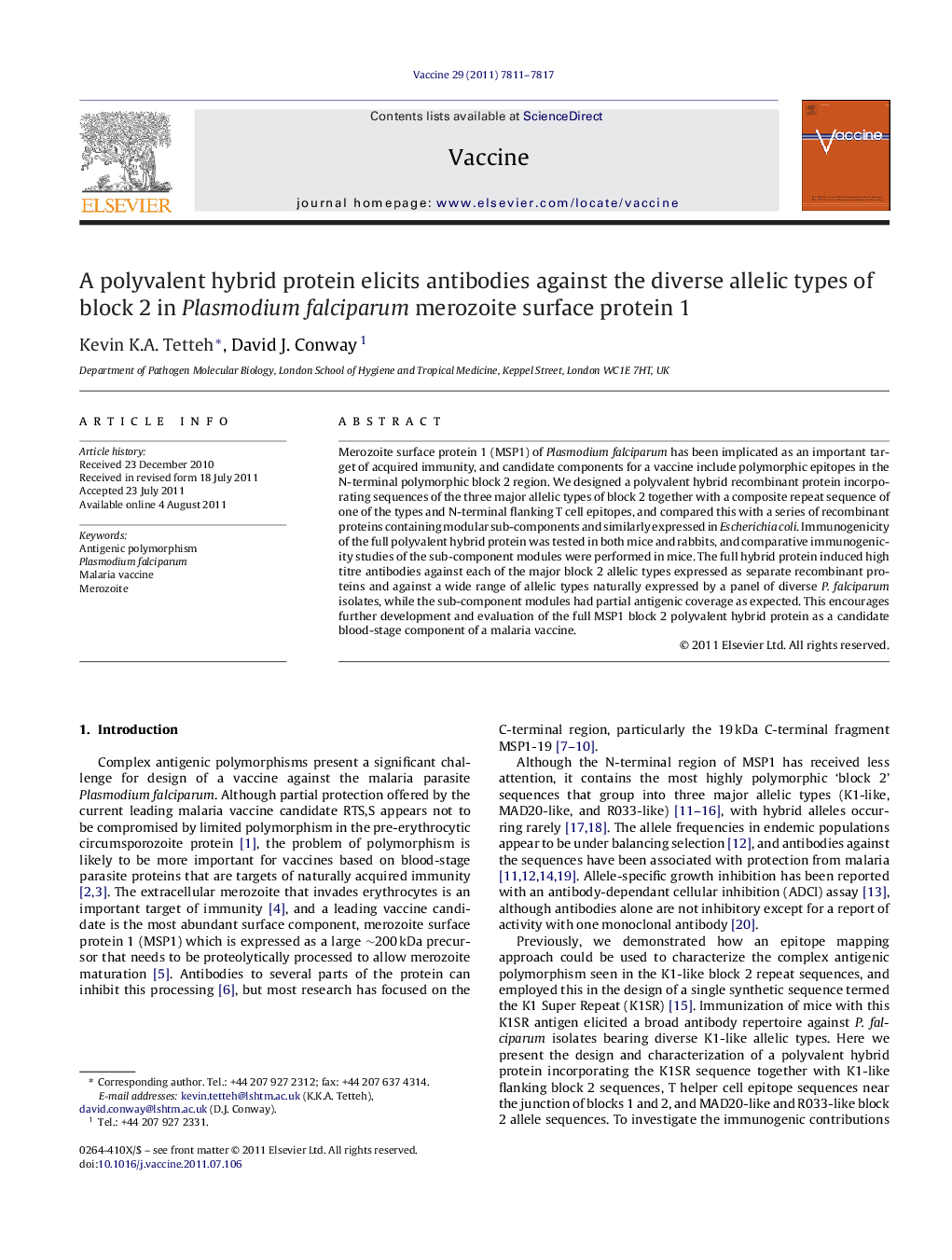| Article ID | Journal | Published Year | Pages | File Type |
|---|---|---|---|---|
| 10969838 | Vaccine | 2011 | 7 Pages |
Abstract
Merozoite surface protein 1 (MSP1) of Plasmodium falciparum has been implicated as an important target of acquired immunity, and candidate components for a vaccine include polymorphic epitopes in the N-terminal polymorphic block 2 region. We designed a polyvalent hybrid recombinant protein incorporating sequences of the three major allelic types of block 2 together with a composite repeat sequence of one of the types and N-terminal flanking T cell epitopes, and compared this with a series of recombinant proteins containing modular sub-components and similarly expressed in Escherichia coli. Immunogenicity of the full polyvalent hybrid protein was tested in both mice and rabbits, and comparative immunogenicity studies of the sub-component modules were performed in mice. The full hybrid protein induced high titre antibodies against each of the major block 2 allelic types expressed as separate recombinant proteins and against a wide range of allelic types naturally expressed by a panel of diverse P. falciparum isolates, while the sub-component modules had partial antigenic coverage as expected. This encourages further development and evaluation of the full MSP1 block 2 polyvalent hybrid protein as a candidate blood-stage component of a malaria vaccine.
Related Topics
Life Sciences
Immunology and Microbiology
Immunology
Authors
Kevin K.A. Tetteh, David J. Conway,
